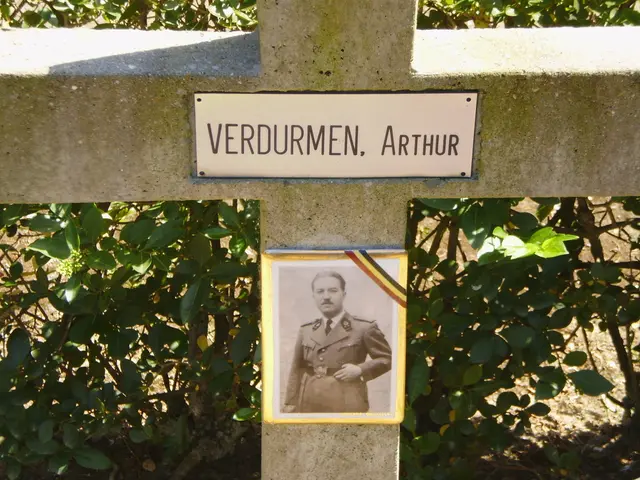Transforming waste into fuel: Harnessing plastic debris, hydrogen power, and a zero-emission future
GREEN CHEMISTRY: TURNING WASTE INTO VALUE
Society REPORT FROM A RESORT STRICKEN BY OIL SLUDGE: "ANAPA'S BEACHES HAVE NEVER BEEN SO CLEAN!" VIDEO SOCIETY ALEXANDER SERGEEV
- ONE OF THE PARTICIPANTS IN THE ATOMIC PROJECT WAS ACADEMICIAN IGOR VASILIEVICH PETRYANOV-SOKOLOV - A TRULY OUTSTANDING PERSON AND GREAT SCIENTIST. HE WAS ONE OF THE FIRST TO RAISE THE QUESTION - CAN WE WORK WITH MATERIALS WITH AN EYE TO THE FUTURE? THAT IS, WE TAKE COMPONENTS FROM NATURE, MAKE A MATERIAL, THEN THIS MATERIAL BECOMES PART OF A DEVICE OR MACHINE, AND THEN DISPOSAL OCCURS. BUT THE DISPOSAL IS INTELLIGENT, SO THAT EVERY ATOM AND MOLECULE WE TOOK FROM NATURE CAN BE USED TO PRODUCE OTHER SUBSTANCES. THAT IS, THIS IS "GREEN CHEMISTRY," WHERE WE RETURN NOTHING TO NATURE. ANTON L., HAS THE TIME COME TO SET SUCH A TASK?
In the world, this task was set 15 years ago - no less. Initially, it was about learning to return organic materials created by us back into the economy. Initially, this was done primitively - they were burned to generate energy. However, there's a problem with that. When you burn something, you release carbon dioxide into the atmosphere, which is not good from an ecological perspective. Therefore, at the second stage, attempts were made to recycle these materials - polymers - into a new product. This already works quite well with plastic bottles. You recycle the bottle, it's processed in a certain way, some new polymer is added, and you get a new product, like a new bottle. The third way is to learn to turn polymer waste that we can't recycle into raw material for producing new polymers. For example, in Japan, 7% of waste goes through chemical recycling, 25% goes into general recycling, and the rest is used for energy, i.e., heat is produced. Meanwhile, the share of polymer recycling is gradually increasing...
Alexander Sergeyev
- So, we're producing less and less waste?
Anton Maximov
- Yes, but there's another interesting part. In fact, a concept has emerged: when we create a new material, we should immediately think about its entire life cycle. If we create a polymer that's difficult to recycle after use, it's a bad material.
Alexander Sergeyev
- I have a wonderful colleague from the United States who calls this science - what to do with waste - "toilet science". And since we're producing more and more waste, this "toilet science" is becoming increasingly important. As for nuclear energy, Rosatom is now working on a truly breakthrough project. It's a closed nuclear fuel cycle, where radioactive waste generated by power plants is recycled, and the newly created fuel is used in fast neutron reactors. And the overall task is to recycle the waste we've accumulated and return the radiation level to nature, which is no more than the level created by radioactive substances when we extract them from nature. And this task seems to apply to chemistry as well?
There's a Natural Signature here:
THE FUEL CHOICE: GASOLINE, HYDROGEN, OR ELECTRICITY?
Alexander Sergeev
- Now, let's talk about hydrogen fuel.
Maria Bachenina
- By the way, what happens when all cars switch to electricity, hydrogen, etc.? Suppose I'm the owner of a major oil company - what happens to me and our economy? I'm all for the environment, but I also want to get paid.
Anton Maximov
- You know why we're transitioning from oil to electric vehicles?
Maria Bachenina
- No.
Anton Maximov
- There are two main reasons. First, it's becoming increasingly difficult to reduce emissions from internal combustion engines. This is more of a problem in big cities, but we want to reduce CO2 emissions and control the greenhouse effect. Second, oil is more valuable when converted into petrochemical products. About 15 years ago, chemists started suggesting we convert all oil into petrochemical products instead of fuel. Of course, petrochemicals are a smaller market than oil refining, produced around 500 million tons per year, making up 10-12% of total oil production. Most oil still goes to fuel. But while refineries used to dedicate only 7% of oil to petrochemical production, now they aim for 15-20%. Some plants even convert 40-45% of oil into petrochemicals. There are even projects planning to increase this to 80%. It's clear how to make this happen.
Alexander Sergeyev
- This is deep oil processing that yields less product, but it's much more valuable than fuel.
Maria Bachenina
- Alexander Mikhailovich, you mentioned hydrogen. We know it's an eco-friendly fuel, but it's also extremely explosive.
Alexander Sergeyev
- No, those issues have been resolved. Hydrogen engines are now as safe, if not safer, than conventional engines. The hydrogen direction is very promising. On one hand, there's no apparent energy advantage as producing pure hydrogen requires more energy than it provides in car engines. But there's an advantage in terms of ecology. We want our megacities to be clean and breathable. But I'd like to focus on the economic aspect. If we pursue this path - make our cities clean and switch transport to hydrogen - we'll need to purchase large volumes. This will create a production sector that generates this hydrogen. How is this developing globally? Is there a predicted high demand for hydrogen? Could we also become producers and exporters of hydrogen?
Anton Maximov
- Hydrogen in its concentrated form is virtually non-existent in nature. It can be formed in the Earth's crust, but that's a geological question. Chemically, we obtain it from water or hydrocarbons. From water, it's done by taking water, coal, a bit of oxygen, heating them up, and getting carbon dioxide and hydrogen that can be used. This is called blue hydrogen if the carbon dioxide is captured. But in Russia, hydrogen is usually produced from hydrocarbons through a reaction with water. Traditionally, obtaining hydrogen from methane is the basis of our nitrogen and fertilizer industries.
Dr. Anton Maximov, Director of the A.V. Topchiev Institute of Petrochemical Synthesis and Professor of the Chemistry Faculty at Moscow State University.
Now it's been discovered that there's an excess of hydrogen at many Russian oil refineries. However, the main challenge is transportation and storage, which is a major issue in hydrogen use. Therefore, hydrogen is usually used where it's produced.
AMMONIA AND METHYL ALCOHOL TO DISPLACE DIESEL FUEL
Alexander Sergeev
- They're small, hydrogen atoms, they get everywhere, they ruin pipeline walls and so on...
Anton Maximov
- And it has very low density. That's a big drawback. Because even if you pump hydrogen into a tank at 700 atmospheres of pressure, you'll only get 47 grams of hydrogen per liter of volume.
Maria Bachenina
- If you compare a liter of hydrogen and a liter of gasoline - which fuel will make a car travel farther?
Anton Maximov
- In terms of energy content per kilogram, hydrogen is several times more powerful than gasoline. But a kilogram of hydrogen takes up so much volume that, roughly speaking, it would fill the entire gas tank. First, hydrogen's energy density is much higher than gasoline's. Second, and this is very important, is the fuel's efficiency. If you look at gasoline or diesel engines, their efficiency in converting fuel directly into motion is around 16-25%. Hydrogen fuel cell efficiency is quite high, around 50-52% currently, and could potentially be much higher. So, it's more efficient than gasoline engines, if we could only figure out how to store hydrogen compactly.
Maria Bachenina
- So, hydrogen is a giant among Lilliputians...
Anton Maximov
- Transitioning all transportation to hydrogen would be challenging. We're limited by infrastructure - the convenience of refueling with gasoline or liquefied petroleum gas at gas stations is still a significant advantage over hydrogen fuel. Within cities, electric vehicles are likely to do well. Hydrogen, however, is interesting for long distances and specific applications, like river transport. It doesn't pollute the environment and allows for much longer ranges than batteries, working well in both high and low temperatures. But with maritime transport, it's not so simple. It seems easier to transition to hydrogen derivatives like ammonia and methanol.
Maria Bachenina
- Wait, you can't breathe on that ship, can you?
Anton Maximov
Well, to put it bluntly, it's somewhat of an exaggeration... Ammonia or methyl alcohol could potentially replace fuel oil, which is generally a poor fuel with significant emissions and increasingly stringent requirements. Another option is the use of hydrogen where we need a lot of energy for chemical processes, and where hydrogen is needed as a chemical reagent. This includes what was known as the nitrogen industry in the USSR, and of course, oil refining. Because with hydrogen, not only is the quality of the fuel improved, but more importantly, a significantly larger portion of oil can be converted into good fuel. You probably know that we usually get fuel from the light fraction of oil. But if you take the middle fraction, there's already significantly less hydrogen in it. To get good fuel, the middle fraction needs to be hydrogenated. But oil also has heavy fractions, what we call residues, bitumen. To convert these almost solid residues into gasoline and diesel fuel, even more hydrogen is needed. In fact, hydrogen allows almost 100% of oil - well, at least 96% - to be converted into motor fuel or chemicals.
THE SECRET TO A GREENER WORLD: RECYCLING
Alexander Sergeev
- Here, I probably should take the initiative and tell you that Anton Livovich was essentially the head of work on a very interesting topic: how to turn two kinds of waste into "candy". You have heavy bitumens left over from the heaviest fractions of oil after processing, with a lot of carbon and relatively little hydrogen. On the other hand, there are waste products like plastic bottles and bags, which are very light hydrocarbons with a high concentration of carbon relative to hydrogen. And if you can find the right catalyst, you can turn both the bitumen into something useful and clean up the Gulf Stream from bottles. This miracle has been accomplished, and as far as I understand, several enterprises are already using it...
Academician of the Russian Academy of Sciences, Scientific Director of the National Center for Physics and Mathematics (NCPhM), Alexander Sergeev.
Photo: Yevgeniya GUSEVA. Switch to Photo Bank KP
Anton Maximov
- In Tatarstan, we have an experimental-industrial unit in operation.
Wow! This had a profound impact on me back then. To invent such chemical magic - that's a high intellectual pursuit. Anton Levovich, does artificial intelligence (AI) help you come up with different catalysts?
Anton Maximov
- I think that in the near future, artificial intelligence will become a very effective method for finding the best catalyst compositions and optimal process conditions. Simply because an industrial unit is an ideal object for a neural network to work on. You have certain input data - process conditions, concentration, composition - and output data, like gasoline or diesel fuel. You collect data from 5-10 units over a year and get a huge dataset to train the neural network. After some time, the neural network will tell you with excellent predictive power what will happen if you change the input conditions. But human intuition is still irreplaceable. When creating a new catalyst, a person still relies on their internal logic. And if you combine natural and artificial intelligence, you can get very interesting results.
The second option, what's called combinatorial chemistry, is when you create a device that can test 100 or 200 catalysts simultaneously. On this data basis, you train the model again, and then it starts guiding you: go in this or that direction. This is an extremely interesting field. Of course, it would be great if professional mathematicians worked with professional chemists here. This collaboration is necessary because chemists don't fully understand how easy and interesting it is to use tools like AI. And mathematicians often don't fully understand the chemical background.
Alexander Sergeev
- Great point about NCFM. Look, artificial intelligence, first of all, is about optimizing reactor work. Second, it's about creating new catalysts. We can use our high-performance computers to the maximum for simulating physical-chemical processes in reactors. At the National Center for Physics and Mathematics, we have an interesting project aimed at creating a digital twin of physical-chemical processes. We collaborate with large petrochemical companies in Tatarstan and use modern mathematics, chemistry, and physics for optimal cat
- So, we're creating a new material should immediately consider its entire lifecycle, taking into account recycling and disposal.
- Green chemistry aims to return every atom and molecule from nature back into new substances, reducing waste and carbon emissions.
- Rosatom is working on a closed nuclear fuel cycle, recycling nuclear waste and returning it to nature, a concept that could potentially apply to chemistry as well.
- Ammonia and methyl alcohol could replace diesel fuel in chemical processes, reducing emissions and improving fuel efficiency, especially in maritime transport.
- Artificial intelligence is becoming increasingly important in chemical processes, helping to find the best catalyst compositions and optimize process conditions for a cleaner environment and increased efficiency.







